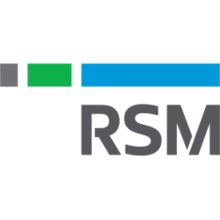Overtime Rule
Issue Overview
In September 2019, the U.S. Department of Labor (DOL) announced a final rule to expand the number of American workers eligible for overtime pay. The rule establishes a new threshold for exempting executive, administrative, and professional employees from following the Fair Labor Standards Act’s (FLSA) minimum wage and overtime pay requirements. Below is a quick breakdown of the new DOL rule:
- The “standard salary level” threshold for those who qualify for overtime pay will rise from $455 per week (equivalent to $23,660 per year) to $684 per week (equivalent to $35,568 per year).
- The “highly compensated employee” threshold will increase from $100,000 per year to $107,432 per year.
- Employers may now use nondiscretionary bonuses and incentive payments (including commissions) that are paid at least annually to satisfy up to 10 percent of the standard salary level, in recognition of evolving pay practices. Any shortages will have to be made up in the following pay period.
The final rule will be effective on January 1, 2020, giving employers slightly more than three months to adjust. In 2014, the Obama Administration tried to expand the overtime rule to those earning up to $47,476 per year and would have updated the threshold every four years to keep up with inflation. The U.S. Chamber of Commerce and Texas Association of Business led litigation efforts to challenge the Obama era rule and succeeded when Judge Mazzant of the Eastern District of Texas ruled against nvalidated the rule.
The FLSA acts as a minimum standard for governing overtime pay. In addition, thirty two states plus the District of Columbia have separate overtime pay laws in place; but in most cases, the state overtime rules defer to FLSA standards. California, Colorado, Hawaii, and Nevada are the only four states that have daily hour overtime thresholds employers must follow. During the 2019 legislation session, 28 bills covering overtime pay were introduced in 15 states.
In Massachusetts, lawmakers introduced legislation (MA SB 1092 & MA HB 4025) that would raise overtime the threshold over the next five years from $35,000 in 2021 to a threshold of $64,000 starting on January 1, 2024. Similar legislation in Maryland (MD HB 1040) was introduced this year that set a salary basis of $900 or more per week as a threshold for exempting workers from overtime pay.



Research & Resources
Chamber Resources
|















